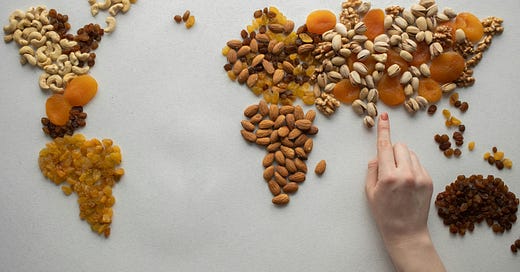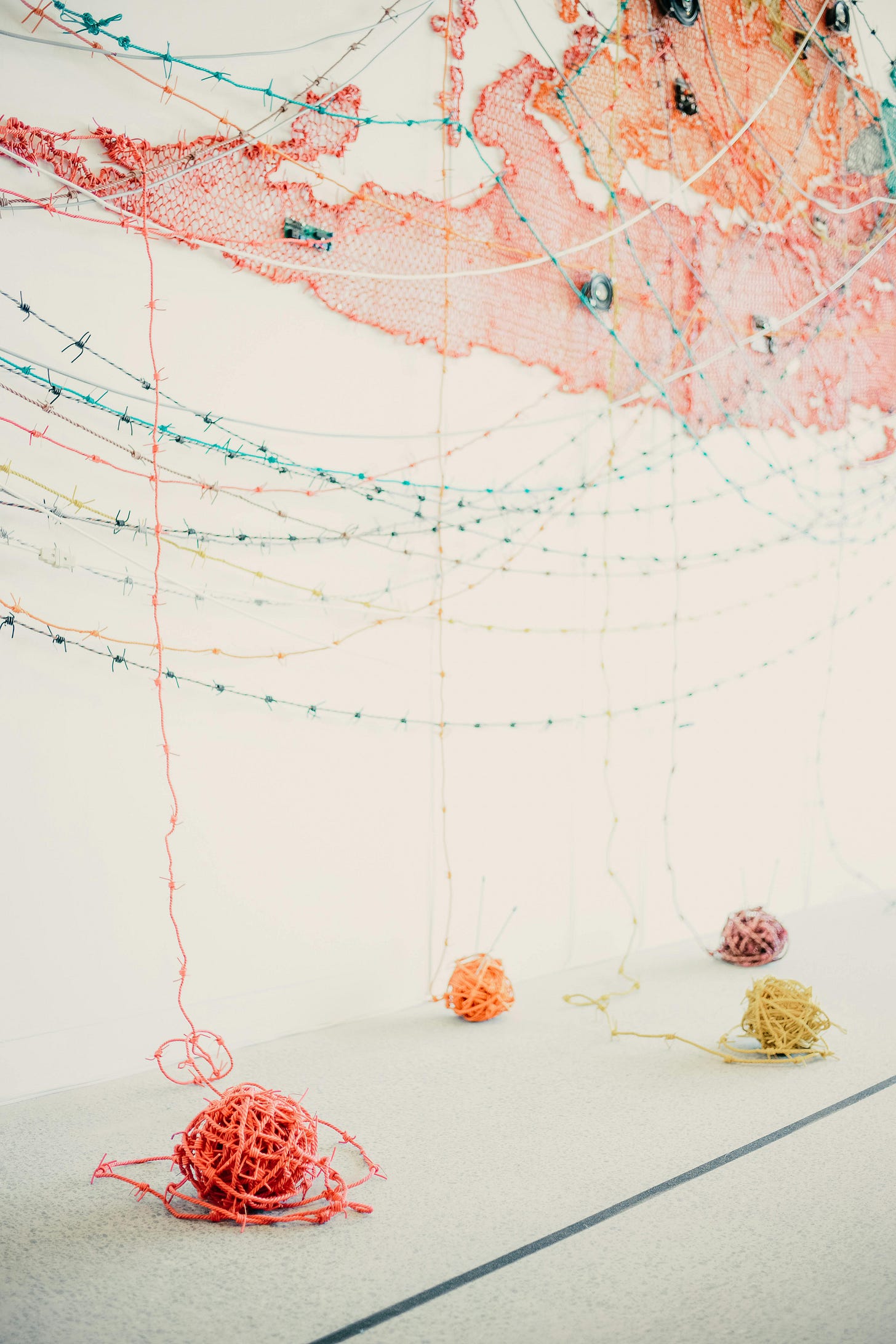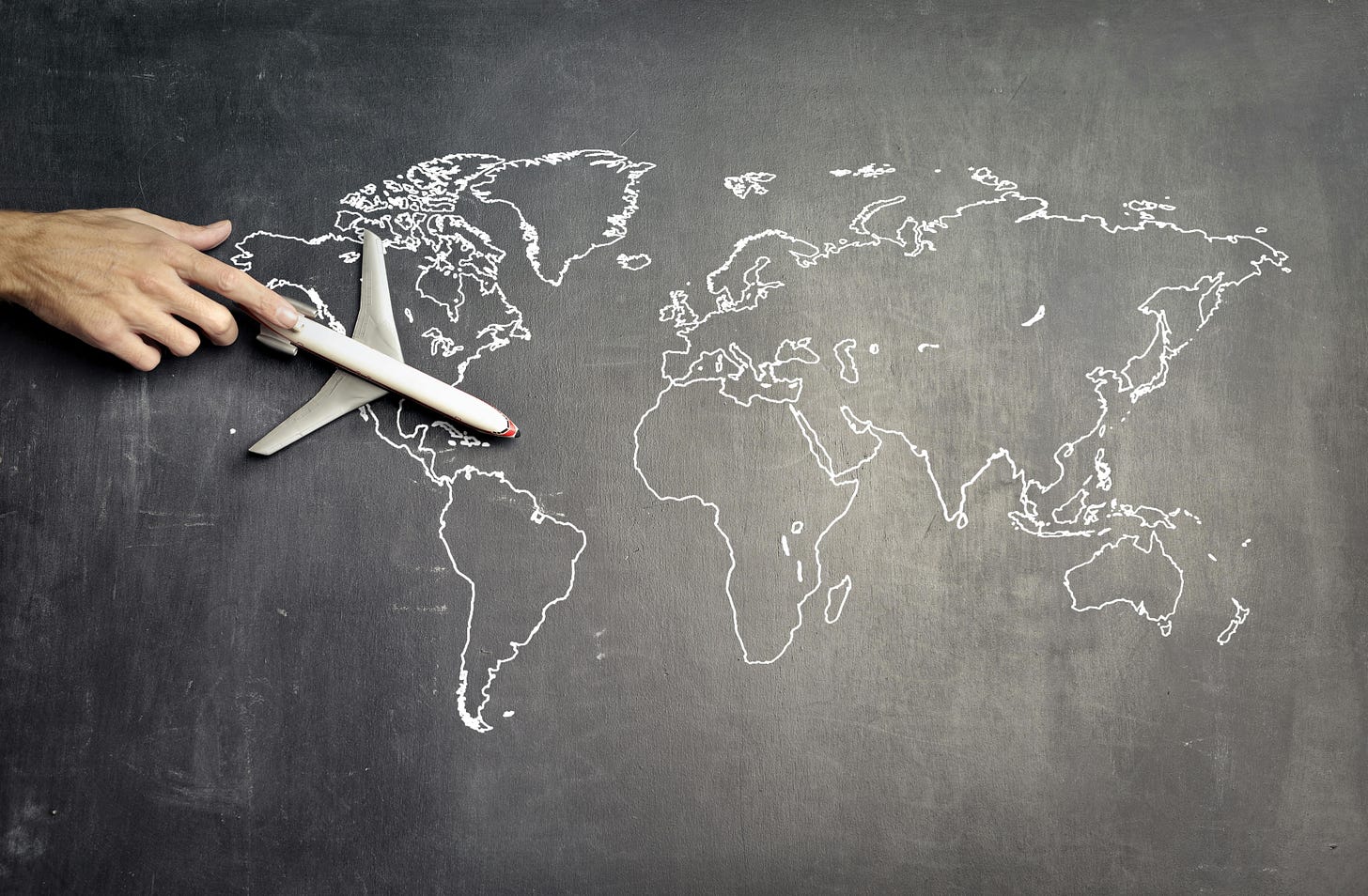What are the greatest injustices in the world?
Surprising statistics and the opportunity to make a difference
A lot of people talk about rights and justice these days. It got me thinking: What are the greatest injustices in the world?
Before I continue, I should preface all this with three caveats about my biases, whataboutism, and the Injustice Olympics:
First off, I care about the justice issues immigrants face, and so I started an org to serve immigrants. (1) So there’s that. Also, in the times when I was born, around a third of those conceived were aborted, so I have long-held convictions about that issue. (2) But more fundamental to my bias is that I am a Christian, and caring about justice is integral to the Christian faith. Scriptures command us to act justly and love mercy and to seek justice, helping the oppressed, and to fight for the rights of others and not withhold justice from the foreigner... (3) It should not be considered odd when a Christian talks of injustice.
Second, when someone brings up an injustice that I am not particularly passionate about (or I may not agree with their solutions) I am tempted to say, “But what about…” and then bring up my passion for a specific injustice. Along the way, I learned this "whataboutism" tactic employed by communist propagandists. During the Cold War, any criticism of the Soviet Union's oppression was responded to with a "What about?" related to slavery or other crimes of the West. It was a debate tactic meant to evade responsibility for the injustice pointed out. Since then, I have paused when tempted to do so. (4) Instead, we can all passionately share about injustices, and take responsibility for where we can counter them.
And the third thing to mention is that I love ranking who the G.O.A.T. might be in pro basketball and making lists of the Top Sci-Fi Films of All Time. However, doing something similar to justice issues might trivialize the concerns. I do not want to compete in the Injustice Olympics.
Notwithstanding these caveats, I have an interest in four different injustices and how widespread they are.
Some are passionate about the injustices surrounding war, race, human trafficking, poverty, or the plight of refugees. Others highlight forms of income inequality, climate change, lack of healthcare, and inadequate housing or clothing. Some are passionate about domestic violence, voting rights, gun violence, mental health, or threats against women. And of course, I'm missing dozens and dozens of other key concerns.
These are injustices worth talking about, and many of them impact millions and millions of people.
But what about the injustices that impact billions of people?
Billions
Some of the injustices mentioned above would be that widespread. But let me offer you four global population ratios I have been thinking about that put injustice into perspective:
1 in 10 do not have access to food security (5)
2 in 10 do not have access to safe water (6)
3 in 10 do not have access to the internet (7)
4 in 10 do not have access to the gospel (8)
Let me say that again:
Worldwide, 1 in 10 do not have access to food security, 2 in 10 do not have access to safe water, 3 in 10 do not have access to the internet, and 4 in 10 do not have access to the gospel.
Food insecurity is when someone does not have consistent daily access to enough safe food to live, and safe water is a fundamental life access problem that contributes to many of the most impactful diseases in the world today. Both are major poverty statistics (nearly a billion people in the world live in extreme poverty), but so is the internet ratio noted here. That may seem less consequential than water and food, but in our times, not having internet access cuts someone off from so many ways to make economic gains, which is why some people are working to try and expand that access not as a business initiative, but as a relief and development strategy.
But even more people are impacted by the last ratio there. Again my bias is at work here. I think this injustice is a big deal because I'm a Christian. If you're not a Christian (and a good number of my friends and readers are not), then this may not matter to you at all. But because I'm a Christian I think it's an injustice.
I think not having the chance to know who Jesus is might be the most widespread injustice in the world today. If I can help someone gain access to healthy food and safe water, then I want to do what I can to help. In the same way, if I can help someone get access to hear about the love of Jesus Christ in a way that is holistic, relational, and non-threatening, then I want to do what I can to help. I believe a lot is riding on this lack of access for literally billions of people.
Knocking On Every Door
I met Lemi in November of 2023 in Istanbul. Lemi worked as a young man on a cruise and saved enough to start a restaurant. Because of my work around the world, I lived and worked in Istanbul for a season and while there, Lemi's restaurant became my favorite haunt in my part of the city.
Lemi is a part of the 70 million Turks who have very little, if any, access to the gospel. There are only 10,000 Turkish Christians. For comparison, I have a friend in the States who is the pastor of a single church that is larger than all of the Christian Turks in Turkey. They are the 3rd largest unreached people group in the world, in fact. And as you see above, Lemi and the Turks are not alone in this access problem. 4 in 10 people worldwide do not have access to the gospel, so they might hear of Christ from someone in their language and culture. That is a massive spiritual need! I remember looking out from my terrace in Istanbul, counting up all the apartment buildings around me. I considered the reality that one could knock on every door in that mahalle (neighborhood) and not find one person to disciple them in their language.
What can we do about this gospel access injustice?
1
Pray about it. I've been praying through the list of the most unreached people groups in the world in the last year and it has grown my knowledge and heart for those who don't have access to knowing Jesus. I've been asking God to send people to do life among these people (Matthew 9:38).
2
Think about the Christians you know who might live and work in another country than their home. Could you catch up with them and learn about the culture they are living in? They could become Global Marketplace Multipliers, Christians who serve in the marketplace intentionally engaging in global disciple-making. Or maybe you have marketable skills in the global economy, or perhaps your job could take you to where people lack access. Should we talk about this possibility for your future?
3
Perhaps God is nudging you to the nations to be a missionary. A missionary is just a Christian who takes this gospel access problem so seriously that they've committed their lives to global service where they confidently and joyfully live out their faith in another country. All kinds of people take up this way of life to honor Christ. If you google "4 in 10 people don't have access to the gospel" one of the top results is Global Partners, an org I trust and have partnered with for decades. Maybe it's time to start a conversation with them if God is nudging you.
Thanks for letting me talk through the injustices that might impact the most people in the world today. I wonder, what injustices are you most passionate about? What other injustices are overlooked, even in my lists above? And also, what are you doing to reframe what it means to not have access to the good news of Jesus Christ as an injustice?









David, your words are filled with challenge and conviction. I can, and will, join in praying daily for those who need to hear of Jesus and those who can, and will, go to them!
The word "justice"... I'm resonating with what you're sharing here, David, and I can't quite put my finger on why I'm uncomfortable about the word "justice" in association with the gospel gap. As someone who's done far more thinking (and acting) about it than I have, have you heard any pushback on that term in particular?